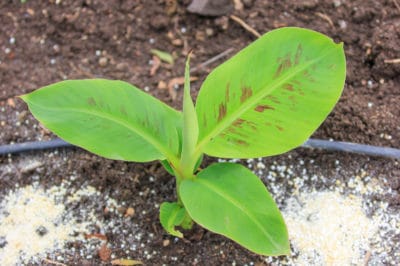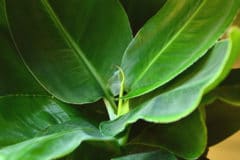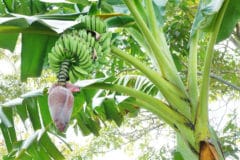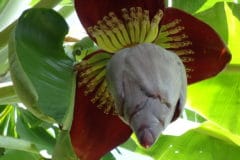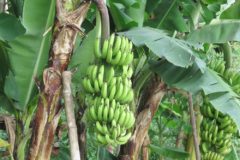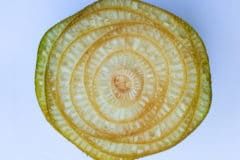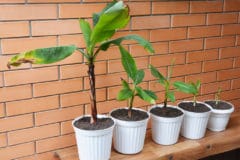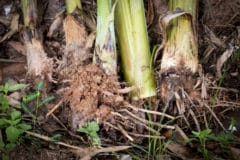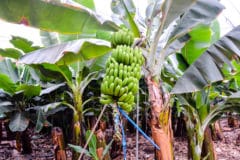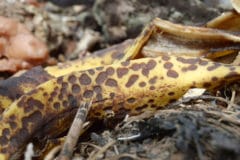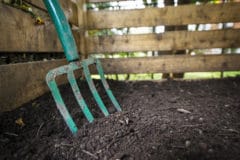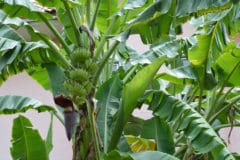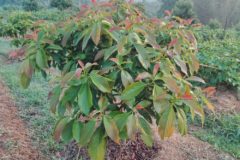Soil for Bananas
Starting with the right soil for a banana plant is at least as important as how you fertilize the plant. The soil should be well-drained, as the banana likes lots of water but dislikes soggy feet. Bananas also prefer slightly acidic soil, with a pH range of 5.5 to 6.5. If you’re planting outside, a soil test is a good idea – you have less control than when planting in a container.
Important Banana Nutrients
Like most plants, bananas require the “big three” of nitrogen, phosphorus and potassium. However, they also require much smaller amounts of the following nutrients:
- Magnesium: prevents leaf damage.
- Calcium-deficient plants have inferior fruit.
- Sulfur: helps plant use nitrogen properly.
- Boron deficiency affects fruit development.
- Iron: prevents pale or white leaves.
- Zinc: affects leaf growth and fruit size.
Fertilizing Outdoor Bananas
Many banana varieties – some edible, some ornamental – can be grown outdoors in USDA zones 7 to 11. Prepare your soil well, especially if it is alkaline, and add humus with rotted leaves or aged manure. Apply high-nitrogen fertilizer once a month in the growing season. Once the banana flowers, switch to high potassium fertilizer. Follow instructions on the package for actual amounts.
Bananas in Containers
A good potting soil mixed with additional peat moss for drainage and acidity is a good choice for bananas in containers. Although container-grown bananas need similar nutrients to those grown in the ground, they should be fertilized with dilute fertilizer each time you water. Another option is a timed release fertilizer several times a year.
When to Cut Back on Fertilizer
Ornamental bananas don’t usually need much fertilizer in the winter. You should also perform regular pH checks – especially when using fertilizer that is high in potassium – and cut back on fertilizer if the soil pH drops below 6.0. Once the fruit begins to develop, bananas don’t need as much fertilizer as during the growth period when they are producing lots of leaves.
Avoiding Fertilizer Problems
High-nitrogen fertilizer has the potential to burn plants. Always follow instructions. Keep pellet and powder varieties away from plant tissue. Container plants may suffer from salt build-up, which has a negative effect on growth. Every two or three months, flush the pots heavily with plain water to remove accumulated salts.
